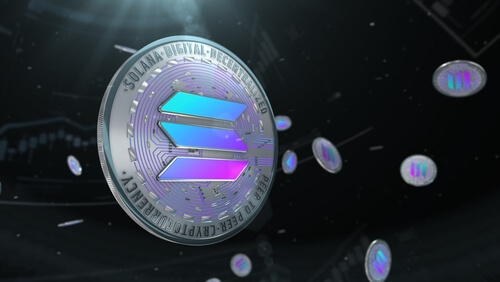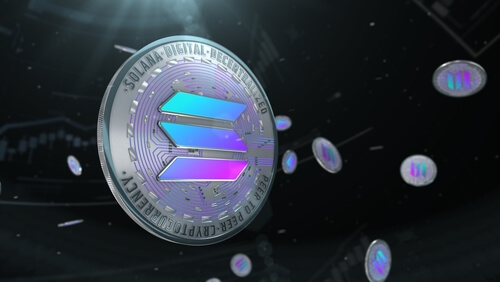
- The ZK Compression uses zero-knowledge proofs for data compression.
- The ZK Compression slashes Solana on-chain storage costs by 99%.
- The ZK Compression operates as an integrated L1 solution, avoiding typical L2 complexities.
Light Protocol and Helius Labs have unveiled a groundbreaking feature known as ZK Compression on Solana, aimed at revolutionising how data is stored on the Solana blockchain by significantly reducing on-chain storage costs.
1/
Today, we launch the next generation of Light.Together with @heliuslabs
At its core, a new primitive:
Tokens and accounts: orders of magnitude cheaper,
while enabling native ZK compute on Solana.
We call it:
ZK Compression. pic.twitter.com/nx3m99bwvy
— Light Protocol (@LightProtocol) June 21, 2024
Launched on June 21, ZK Compression harnesses zero-knowledge (ZK) proofs to compress on-chain data, promising immense scalability improvements and cost savings.
How does the ZK Compression work?
At its core, ZK Compression leverages zero-knowledge proofs to compress and verify off-chain data on Solana’s Layer 1 (L1) network.
By employing sparse state trees and hashing techniques, ZK Compression minimizes the amount of on-chain data required while maintaining data integrity and security.
This approach allows developers to store crucial information more efficiently, translating into substantial cost reductions. For example, according to the Helius Labs’ CEO, the cost of storing 100 compressed token accounts can plummet from 0.2 SOL to just 0.0004 SOL — a staggering 5000-fold decrease.
Solana’s implementation of ZK Compression marks a departure from traditional storage methods, where each piece of data necessitates significant on-chain resources. Instead, by storing only essential verification information on-chain and utilizing ZK proofs to validate the integrity of off-chain data, Solana achieves unparalleled efficiency in data management on its blockchain.
Comparing ZK Compression with Layer 2 solutions
Unlike conventional Layer 2 (L2) scaling solutions, which often require additional security measures and governance structures, ZK Compression operates seamlessly within Solana’s existing validator framework.
This distinction allows Solana to bypass typical L2 complexities while retaining the economic incentives and security assurances of its primary blockchain layer.
Although critics argue that labeling ZK Compression solely as an L1 enhancement overlooks its functional similarities to L2 technologies like ZKrollups, proponents emphasize that Solana’s approach simplifies scalability without compromising on the core benefits of blockchain decentralization and security.
By focusing on efficiency and cost-effectiveness, Solana positions ZK Compression as a robust alternative to traditional L2 solutions, appealing to developers seeking streamlined scalability solutions without the overhead of additional layers.
What does the ZK Compression mean for Solana?
The introduction of ZK Compression holds profound implications for the blockchain industry, particularly in enhancing the feasibility and scalability of large-scale applications on Solana.
For instance, projects involving extensive data storage or frequent transaction processing, such as decentralized finance (DeFi) protocols or non-fungible token (NFT) marketplaces, stand to benefit significantly from reduced operational costs and improved throughput.
Moreover, Solana’s commitment to advancing blockchain scalability through ZK Compression underscores its ambition to foster innovation and attract a broader developer community.
As the technology matures and adoption grows, ZK Compression could pave the way for new use cases and applications that leverage Solana’s high-performance blockchain infrastructure.










